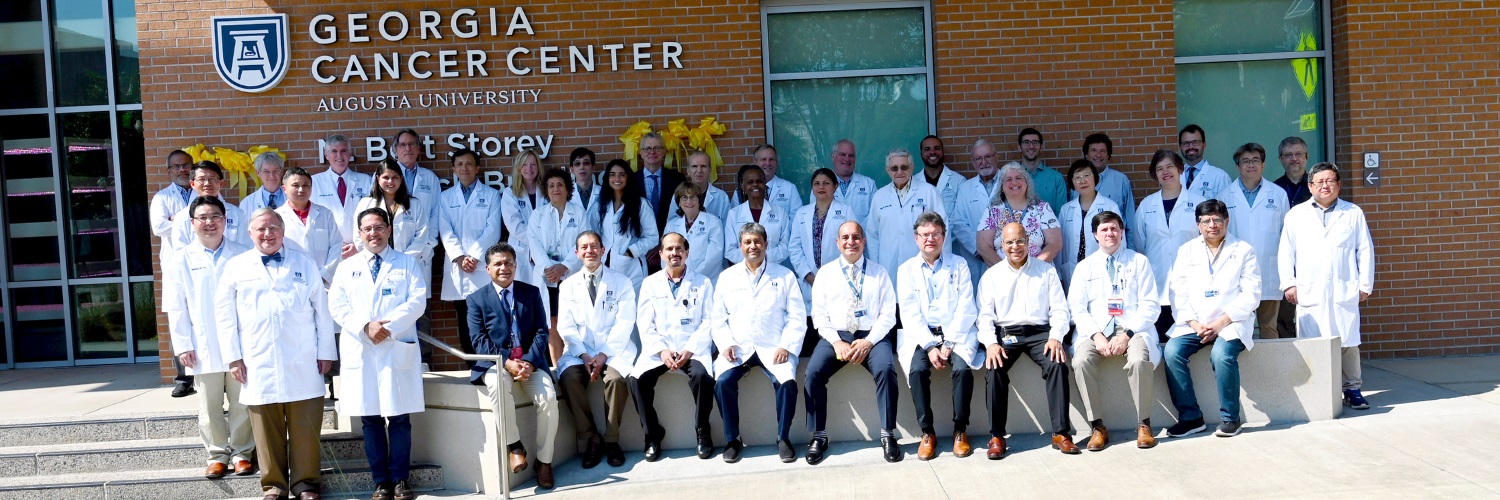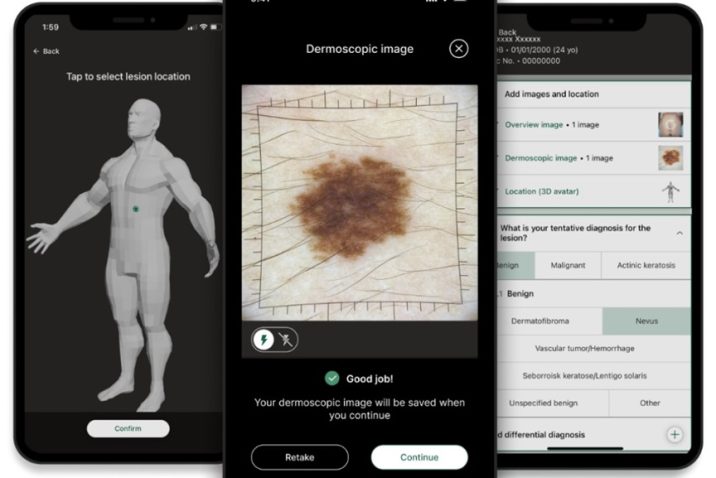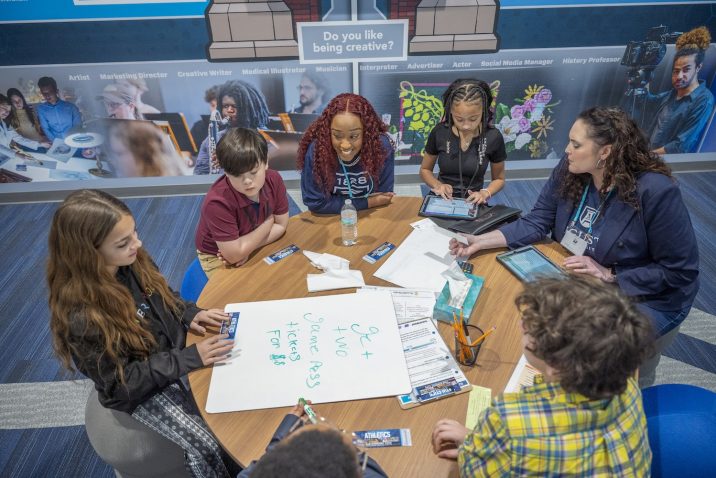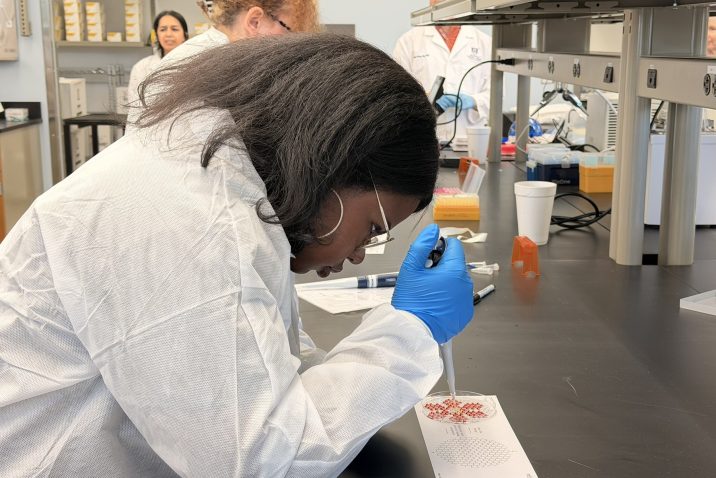An unexpected path leads Georgia Cancer Center researcher to a rewarding career
"I came to appreciate and eventually love the remarkable science behind biology and medicine," says Bangxing Hong, PhD.

We want you to join our team! As a faculty member of Augusta University and the Georgia Cancer Center, you are part of more than an institution. You are part of building the future for cancer care and translational research.
To reduce the burden of cancer in the State of Georgia and across the globe through superior care, innovation, and education.
To be a global leader in cancer clinical care, discovery, innovation, translational research, professional education, and public awareness.
Our freestanding clinical and research buildings continue to collaborate toward a patient-centered approach utilizing first-in-the-nation treatment protocols, an experimental therapeutics program, and specialized clinics for state-of-the-art drug and immunotherapy clinical trials. Our basic and translational research is supported by the National Institutes of Health-National Cancer Institute and includes our state’s only minority-focused research program. Education is also an essential part of our mission as we train the next generation of physicians and scientists to continue the work we have begun. As of December 2021, the Georgia Cancer Center includes 78 faculty members with a funding portfolio of $83,557,502. This includes multiple National Institutes of Health-funded grants totaling $8,599,119. Also, in 2021, Georgia Cancer Center clinical and laboratory faculty published more than 220 publications.
With strong state support, we have been able to invest substantially in developing the physical structure of the Cancer Center. In 2006, a $54 million, 151,000-square-foot research building was erected to house Cancer Center scientific laboratories, shared facilities, and administration. In 2010, a $31 million, 64,000-square-foot adult cancer clinical facility opened, providing comprehensive outpatient oncology services and housing a dedicated clinical trials unit. In early 2012, the two units merged to become the Georgia Cancer Center, with members recruited from colleges, departments, and institutes at Augusta University and from top cancer centers across the country. In 2018, we completed a 78,000-square-foot expansion project that will not only add much-needed research and clinical space, but will also quite literally bridge the gap between the Cancer Center’s clinical and research missions. This $62.5 million project includes a five-story addition to the existing research building and a three-story “bridge” building connecting the research and clinical facilities, designed to foster further collaboration and communication. These recent large investments are setting the foundation for the Georgia Cancer Center to take its next major step in advancing cancer research, clinical care, and education as a destination cancer center.
Georgia Cancer Center
Research at the Georgia Cancer Center continues to focus on the most promising pathways for the prevention and treatment of cancer. Our labs include 57 research faculty with a funding portfolio of $16,249,929. This includes 21 NCI-funded grants totaling $7,987,143. Our active scientists have also increased their number of publications (including original research, books, and reviews) by nearly 50 percent over the last five years.
The goals of the Cancer Immunology, Inflammation & Tolerance program are to study how the immune system can recognize alterations caused by malignant transformation, examine those immune inflammatory processes that cause cancer, and develop immune-based strategies to prevent and treat cancer. A major impetus of all CIT members is to translate knowledge acquired from basic research into the clinical setting.
The goal of the Molecular Oncology & Biomarkers program is to understand the fundamental cellular and molecular processes that contribute to cancer development and progression. This can be divided into three broad themes including genetics and epigenetics of cancer development and progression, cell stress and metabolism, and cancer cell metastasis.
The Georgia Cancer Center is building a focus in cancer prevention through the Cancer Prevention & Control program. The program goal is to bring cancer prevention efforts to medically underserved regions of the state of Georgia that show significant disparity in outcomes in minority populations. Current focuses include chemodietary prevention, the relationship between HPV and cervical cancer, lung cancer, tobacco cessation, breast cancer, and colorectal cancer.
The Georgia Cancer Center houses a dedicated cancer clinical research unit that oversees the center’s own Phase I-IV trials and manages studies from throughout the medical center offered in conjunction with oncology departments such as radiology and gynecologic oncology. It also manages Georgia’s only minority-focused research program (NCORP).
Augusta University resources that support clinical trial efforts include:
The Georgia Cancer Center has been awarded a grant from the National Cancer Institute to lead the state’s only cancer research program focused on better access to clinical trials and cancer treatments for minority and underserved patients. The Georgia Cancer Center is just one of 12 sites selected nationally.
As part of the NCI Community Oncology Research Program (NCORP) network, the Georgia Cancer Center-led consortium:
Our partners include Morehouse School of Medicine, University Cancer & Blood Center,
DeKalb Medical, the Cancer Center at Phoebe Putney Memorial Hospital, and the Jiann-Ping
Hsu College of Public Health at Georgia Southern University.
By partnering with other institutions around the state, we aim to increase awareness of and participation in NCI-sponsored clinical trials and cancer care delivery research throughout Georgia, in order to address the historic barriers that have stood in the way of minority and underserved patients participating in clinical trials and other important cancer research.
The Georgia Cancer Center is advancing public, patient, and professional education and cancer-related training throughout the enterprise and in the community it serves in several important ways.
Public Education
Working in conjunction with the Office of Cancer Information and Awareness, the Office of Education assists in community education by providing content experts who have received training in communicating science to the public. These ambassadors, who include student trainees, research and clinical fellows, as well as staff and faculty, have a passion for sharing their knowledge with the next generation of scientists and physicians, while simultaneously informing the community about the many exciting research projects and opportunities ongoing at the Georgia Cancer Center.
Professional Education
The Office of Education also has taken on the responsibility of updating physicians at the Medical College of Georgia, as well as in our community, in the fast-paced field of oncology clinical trials research. One aspect of our professional education programming has been provided through Augusta University’s Continuing Medical Education (CME)-accredited lecture series that brings in field leaders to share forefront knowledge with Cancer Center faculty as well as with community physicians. In addition, collaborative workshops and retreats have been hosted by the Georgia Cancer Center to support the exchange of professional ideas, to educate community physicians regarding recent advances in the field, and to foster collaborations with other regional entities (e.g., UGA and MUSC).
Next Generation of Scientists and Researchers
The Georgia Cancer Center strives to advance the field by training the next generation of physicians and scientists in oncology. The Cancer Center is an active participant in Augusta University training programs, from graduate programs to postdoctoral training in both research and clinical care.
PhD Program in Biochemistry and Cancer Biology
The PhD program in biochemistry and cancer biology (BCB) program offers some of the best technological facilities in the world and the innovative training needed to make significant contributions to this important field of discovery. BCB is committed to expanding students’ horizons and nurtures their potential as the next generation of cancer researchers.
BCB is the largest biomedical sciences program. The program is supported by senior leadership from Dr. Vinata Lokeshwar, the chair of the department of Biochemistry and Molecular Biology, and Dr. John Cowell, Interim Director of the Georgia Cancer Center. The program directors interact regularly with the College of Graduate Studies and with a faculty BCB steering committee to design curriculum and student assessment. Both tracks work as a team to ensure that the students receive training in bench-to-bedside research with a solid foundation in basic/translational research, while also enjoying a wholesome graduate education experience.
PhD Program in Molecular Medicine
The Molecular Medicine (MolMed) Graduate Program combines the resources of basic science and translational medical research and emphasizes the molecular processes underlying human diseases and explores the potentials of translating basic studies at molecular level into novel disease treatment approaches.
The MolMed Graduate Program is designed to prepare students for careers in basic and translational biomedical research in academic environment as well as industries. It requires approximately five years of full-time study, including course work, examinations, and dissertation research. All students complete a PhD dissertation based on original research.
Postdoctoral Training
The Georgia Cancer Center is supporting 22 postdoctoral fellows in research. The program is also funded by two R01 supplements from NCI and NHLBI for the training of future scientists.
Clinical Fellowships
Along with training medical students and residents, the Georgia Cancer Center supports the training of clinical fellows with a specific interest in cancer. In hematology/oncology, we support 10 fellows, including three first-year, five second-year and two third-year fellows. The GCC also supports one fellow in the first and only fellowship in gynecologic oncology in Georgia and South Carolina.
Membership is open to all faculty who seek to promote the mission of the Georgia Cancer Center and meet the membership requirements outlined below. Membership appointments will be made by the Director for two-year terms.
To be considered for membership, candidates must apply by completing the online application form. Included should be a CV, NIH biosketch, other support, and a list of clinical trials for which the investigator is a Principal Investigator or has accrued patients. There are five membership types:
Appointments for all membership categories will be notified of any changes in criteria. The Georgia Cancer Center Executive Committee will review all memberships periodically and may reassign membership categories based on then-current membership criteria. All recommended changes will be forwarded to the Georgia Cancer Center Director for approval. Applications for membership should be made through the Georgia Cancer Center's website. The Georgia Cancer Center Executive Committee or individuals designated by the Director will review applications, assign categories, and make recommendations to the Director.
Georgia Cancer Center Adjunct Members are full-time faculty at institutions external to Augusta University who collaborate with or are seeking to collaborate with Georgia Cancer Center Full Members, either as a cancer researcher or to apply their current research interests to cancer research.
Georgia Cancer Center Trainee Affiliate Members are Augusta University early-career cancer researchers who have not yet been granted peer-reviewed, external funding, as well as trainees (graduate student, medical student, resident, fellow, etc.).
Georgia Cancer Center Emeritus Members are distinguished senior faculty who have retired from the Georgia Cancer Center. GCC Emeritus Members are determined at the discretion of the Cancer Center Director.

"I came to appreciate and eventually love the remarkable science behind biology and medicine," says Bangxing Hong, PhD.

"Although skin cancer is one of the most common cancers in the United States, it is also one of the most preventable," says Brenda Santellano, MD.

"Together, we are strengthening our communities while advancing the mission of Augusta University," says AU President Russell T. Keen.

These programs are part of a broader effort to kindle interest in biomedical careers and give young learners authentic exposure to the techniques scientists rely on.
The Georgia Cancer Center at Augusta University is dedicated to reducing the burden of cancer in Georgia and across the globe through superior care, innovation, and education. Through unprecedented expansion, the Georgia Cancer Center is providing access to more first-in-the-nation clinical trials, world-renowned experts and life-saving options.
Follow the Georgia Cancer Center